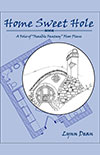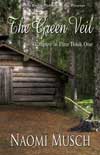I love writing dialogue. When I start working on a story, it’s the things characters say to each other that begin sounding in my head.
Improving the dialogue is one of the fastest ways to make your story better so let’s look at some tips from professional writers.
All of the books I’ve read agree on two things: A.) Don’t try to write dialogue the way we speak! Leave out the boring parts such as greetings. “Good morning.” “How are you?” “Fine, and you?” (Yawn!) B.) Don’t use dialogue as an information dump. Example: “My aunt is coming. She’s the one who has the pizzeria down on Main Street where the fire was last night.” If the information is essential, find another way to work it in, but don’t dump it in the dialogue.
So what specifically can you do to improve the dialogue?
Tip #1 from James Scott Bell: Write compressed dialogue. Chip off all the unnecessary words. Instead of writing, “Would you like to go to the basketball game with me?” Write: “Let’s go to the game.” Drop words, and keep it lean.
Tip #2 from Susan May Warren: Spice up the conversation between characters with name-calling. If someone tries too hard to be funny, have a character call him a name. “Okay, Bozo, that’s enough out of you.” If someone’s suggests something dangerous, use another name. “Whoa, Superman, I’m not that brave.” The possibilities are endless and lots of fun.
Tip #3 from Jerry Jenkins: Use the simple attribution of “said” if you use one at all. Attributions are the little indentifying tags like he said, she asked. Some writers try to get clever and change the attribution: he responded, she queried, etc. Those attributions begin to call attention to the tag itself while “said” is almost invisible. Whatever you do, don’t write: “Get out,” she hissed. (Hissing requires the “s” sound which is not present in the words uttered.)
Tip # 4 from Donald Maass: Infuse dialogue with tension. Tension comes from warring emotions. It’s not so hard to come up with emotional friction between antagonists, but what about pitting allies against each other? Have them get sarcastic with each other. Donald Maass says, “True tension in dialogue comes not from what is being said, but from inside those who are saying it.” (The Fire in Fiction, page 195)
Writing Exercises:
- Go over a passage of dialogue you’ve written and see if you can cut words.
- Find places to inject name-calling.
- Use only “said” or “asked” as attributions, but see if you can get by without them sometimes.
- Look for places to ratchet up the tension, especially between friends.
















Speak Your Mind
You must be logged in to post a comment.